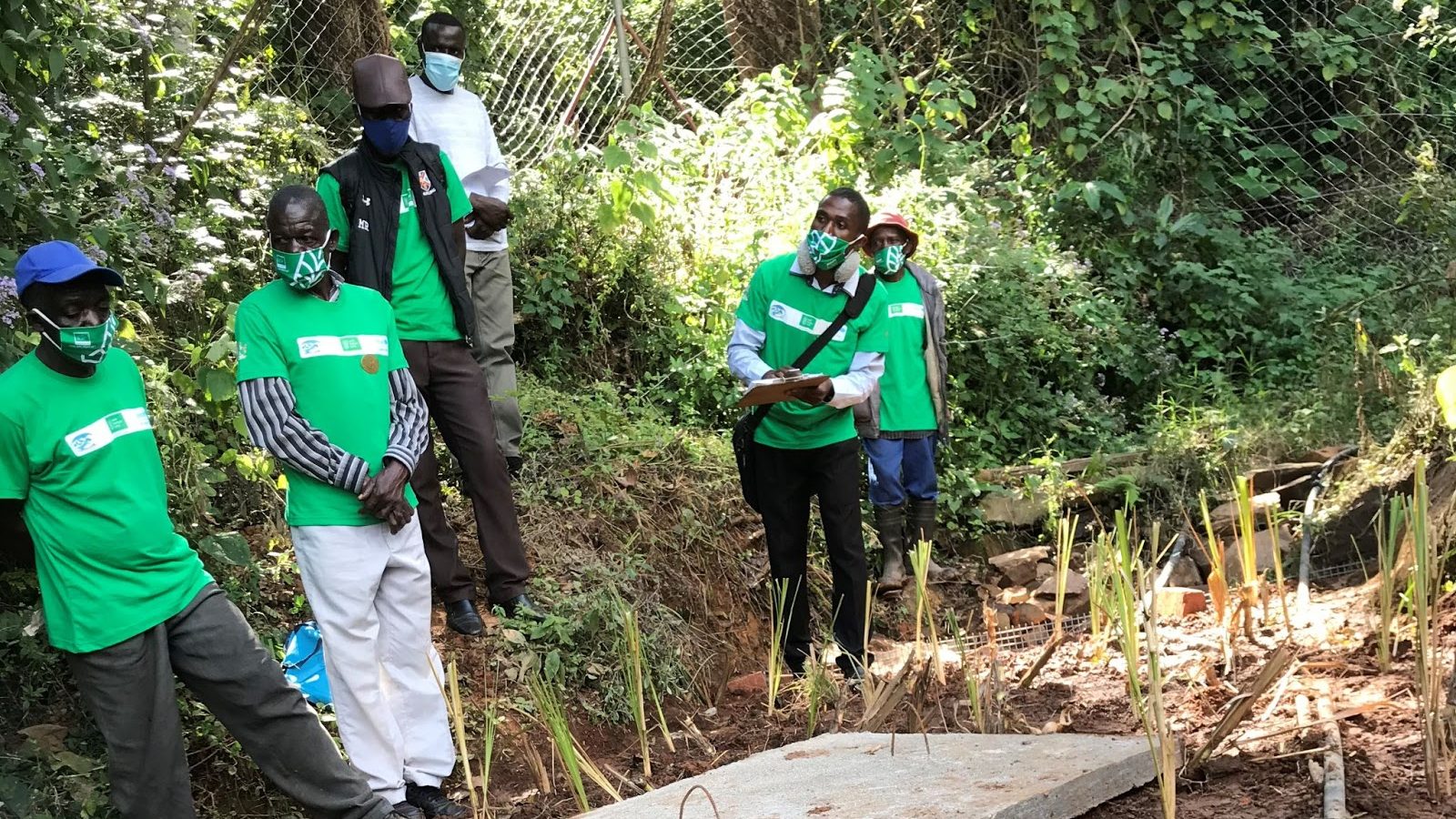ZIRP promoting sustainability of water sources through permaculture
ZIRP has restored access to water to 17,863 households in Cyclone affected areas by rehabilitating boreholes, deep wells and installing piped water schemes. Through environmental and social screenings embedded in ZIRP programming, the need to protect water sources and their environment were identified. The community in Kwirire in Chimanimani is improving the quality and quantity of drinking water by planting trees and other plants (permaculture) around water sources.
Selina Manjoko, a 42-year-old widow from Kwirire, is a member of the Kwirire Primary School Piped Water Scheme Water point Committee. Selina was also affected by Cyclone Idai two years ago, and now she is helping to rebuild the community.
“We have been having challenges with our water source, which is a spring. The spring is now drying up and can no longer produce enough water for us to use in our gardens and for the school to provide enough water for its pupils and teachers. This was not the case as the water was adequate before Cyclone Idai hit our area. The issue of water being inadequate has led to conflicts between the school and other water source users,” said Selina.
In a bid to revive the school piped water system, WHH, the ZIRP implementing partner, and the District Council met with community leaders and other stakeholders to discuss the way forward.
“We presented the problems that we were facing as a community to WHH and a meeting was set up by traditional leaders. Present in the meeting was the Environmental Management Agency (EMA) and the Forestry Commission. It was concluded that siltation at the spring closed the spring openings resulting in less water. EMA and the Forestry Commission recommended that we stop streambank cultivation,” she added.
“During the training on environmental and social management , we were taught that trees reduce the amount of storm water runoff, which reduces erosion and pollution of waterways, and this also reduces siltation of our spring. Trees improve the filtration process, thereby recharging the spring, providing shade and lowering temperatures around the spring to avoid loss of water through evaporation,” explained Selina.
WHH, in consultation with EMA and the Forestry Commission, managed to procure 700 trees and plants, namely Mutsungunu, Mutsahware, Fig tree, Water berries, Lukina, Mutsamvu, Jacaranda tree, Mahogany, Murungu and vetiver grass for the people of Kwirire.
Through UNICEF, the implementing partner for the WASH component, ZIRP has ensured the training of all Water Point Committees on Drinking Water Safety and Security Planning (DWSSP) which is a tool to outline the risks, and map the mitigation, safety and security plans for water points. DWSSP is the fulcrum of the resilience arm for WASH which ensures the sustainability of interventions for access to clean water. DWSSP is empowering communities like Kwirire to sustain their resources beyond the life of the project and build resilience for future shocks.

